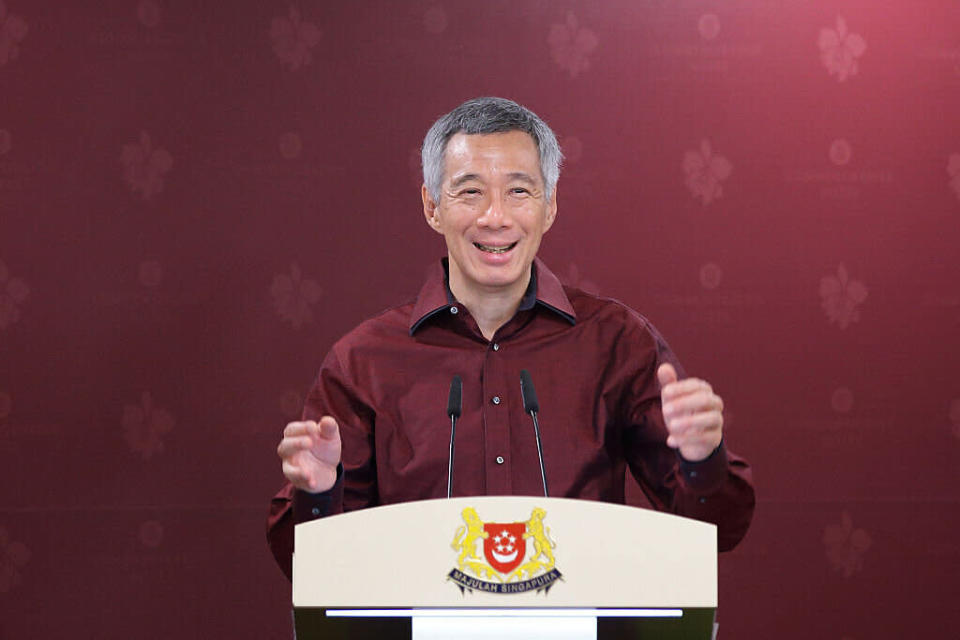Singapore had 'no sympathy' for Khmer Rouge, values ties with Cambodia and Vietnam: MFA

SINGAPORE — Singapore had “no sympathy for the Khmer Rouge” and “highly values” its relations with Cambodia and Vietnam, said a Ministry of Foreign Affairs (MFA) spokesperson on Friday (7 June).
In response to media queries on Prime Minister (PM) Lee Hsien Loong’s condolence letter on the passing of former Thailand PM General Prem Tinsulanonda and a speech made during this year’s Shangri-La Dialogue speech, the spokesperson said, “Notwithstanding our differences in the past, we have always treated each other with respect and friendship.”
“This is the context of Prime Minister Lee’s condolence letter and Shangri-La Dialogue speech,” the spokesperson added in the statement.
Lee’s references to this “painful” chapter of Indochina’s history are not new and reflect Singapore’s longstanding stance.
Singapore did not want to see the Khmer Rouge return to power in Cambodia, the statement said. The Republic and fellow members of the Association of Southeast Asian Nations (Asean) sponsored UN General Assembly resolutions in 1988 condemning the Khmer Rouge to ensure it would not be part of any eventual government in Cambodia.
“Our founding Prime Minister, Mr Lee Kuan Yew, wrote about this in his memoirs. Asean (then comprising five members) also stated its position on Cambodia clearly in a joint statement that was circulated to the UN Security Council in 1979, that ‘affirmed the right of the Kampuchean people to determine their future by themselves, free from interference or influence from outside powers in the exercise of their right of self-determination’,” the statement said.
Lee’s recent comments were aimed at stressing that regional stability and prosperity, as well as Asean unity, cannot be taken for granted, particularly given current geopolitical uncertainties, said the spokesperson.
“While Singapore and Vietnam were on opposing sides in the past and have different views of that history, our Leaders chose to set aside differences to forge a close partnership both bilaterally and in Asean.”
Similarly, Singapore had worked to foster good ties with Cambodia and bring it into Asean.
“An understanding of the past enables us to fully appreciate and value the good relations that we now enjoy,” the spokesperson said.
Lee had said in a tribute to General Prem on his Facebook page last Friday that the latter was PM when Asean members were united in opposing “Vietnam’s invasion of Cambodia and the Cambodian government that replaced the Khmer Rouge”.
He also spoke about the conflict later in the day during the Shangri-La Dialogue held in Singapore, and said the invasion posed “a serious threat to its non-communist neighbours”.
The remarks were criticised by leaders from Vietnam and Cambodia.
Vietnam’s Ministry of Foreign Affairs said in a tweet that it “regretted” Lee’s remarks. Cambodian PM Hun Sen said Lee’s statement “reflects Singapore’s position then in support of the (Khmer Rouge) genocidal regime and the wish for its return to Cambodia”.
The MFA statement said Minister for Foreign Affairs Dr Vivian Balakrishnan made separate phone calls to both Vietnamese deputy prime minister and minister of foreign affairs Pham Binh Minh and Cambodian deputy prime minister and minister of foreign affairs Prak Sokhonn on Friday, where he explained Singapore’s position.
“They agreed that notwithstanding the serious differences in the past, we have taken the path of cooperation, dialogue and friendship,” said the spokesperson.
“Singapore is committed to building on our good relations with Vietnam and Cambodia, and hope that they can continue to grow from strength to strength, based on candour and trust.”
Related stories:
Cambodia PM Hun Sen: PM Lee's comments 'an insult' to sacrifice of Vietnam's military volunteers
Vietnam's objection to PM Lee's remarks doesn't change past as many view it: Tan Chuan-Jin
Vietnam and Cambodia object to PM Lee’s remarks on conflict against Khmer Rouge as ‘invasion’


